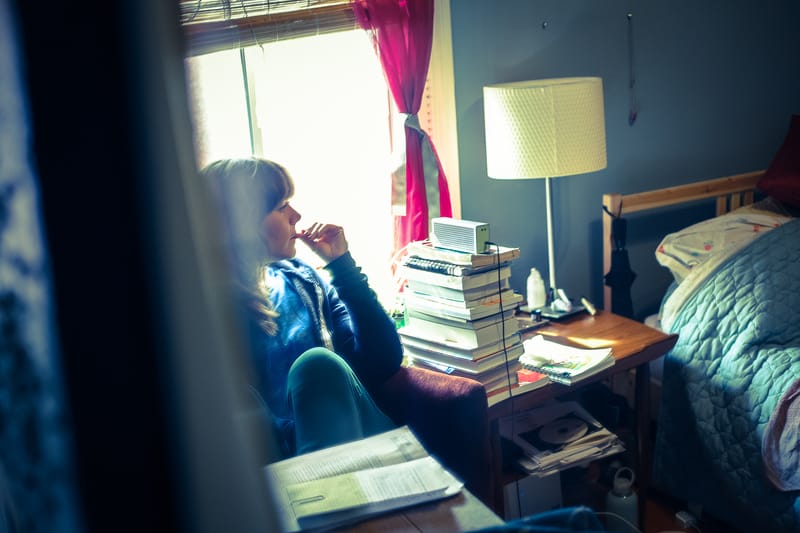I firmly believe that there are two types of people when it comes to the outcome of this one fantastical question: Would you rather have the ability to fly or to be invisible?
Imagining invisibility is a daily fantasy for me, because of the opportunity to be present without having to exist inside of my physical moorings. Theatre creative Sasha Singer-Wilson and musician Cat Montgomery have joined forces to create Inside, a play that aims to investigate notions of invisibility and presence, especially as they relate to gender and solitude.
Think about it: if someone were to peek in on you, alone in your bedroom or kitchen or garage, what might they learn about who you truly are? This question is explored through a series of site-specific theatrical encounters (eight, to be exact) that invite members of the audience to peer into private lives and ponder their own. You won’t want to miss this one, as it makes use of more immersive storytelling techniques than the usual stage production – members of the audience walk through rooms in a west end apartment, and peek inside the rooms to see the performers at work.
Sasha and Cat curated the material for the play by asking their collaborators a series of questions like, “Does the public presentation of yourself differ from the self you experience in private?” “What’s one thing you’ll only do when you’re alone at home?” and, “If someone were to peek in on you, all alone in your bedroom, what might they learn about you?”
We got a chance to ask Sasha about her process, as well as her own secret habits:
What are some unique challenges of planning and blocking a play within an apartment?
All of our challenges in the process with Inside have become opportunities to re-evaluate and redefine the ways in which we work. The rooms that the actors are in become a scene partner and we are inspired by what we have that’s easily accessible. We’ve borrowed a mantra from the folks at One Yellow Rabbit in Calgary: “Use the available light.” This somehow opens up the possibility and our imaginations, when we know we have to work within a tiny room, or with the sounds of the bus going by.
What is the most rewarding thing about being in private with yourself?
When I’m alone at home, I settle into quiet contemplative time in a way that I just don’t when I’m with people. I love to putter around, going from thing to thing, washing dishes and then making a cup of tea, listening to a podcast OR replying to an e-mail. Inside stems from interviews that Cat and I do with our team, and one commonality amongst all of us is that our animal behaviours can really emerge when we’re alone: preening, sleeping, eating, cleaning… It’s so cool.
What’s one thing that most people do in private that they ought to be less ashamed of? How do you suggest they incorporate that aspect of themselves into their public personas?
When no one else is around we can be in truth with what’s really going on (if we aren’t distracting ourselves with Facebook, or scrolling through Twitter or watching Netflix). We are seeing how similar we all truly are. Shame can be removed from the equation when we recognize that we all have moments of being lonely or sad or angry; we all have moments of wanting to distract and surrender. It’s up to us how we choose to cope with these moments.
Now, the inverse. Which public habits ought to be relegated to private spaces?
The whole nail clipping thing that happens on the streetcar? That, to me, should really remain a private thing… Cellphones have changed the game in terms of the intimate conversations you can overhear sitting beside someone at a cafe. Our boundaries of what’s socially acceptable are constantly changing.
Performances of Inside will be presented at the SummerWorks Festival, August 4-14th, 2016.



 Follow Us On Instagram
Follow Us On Instagram
